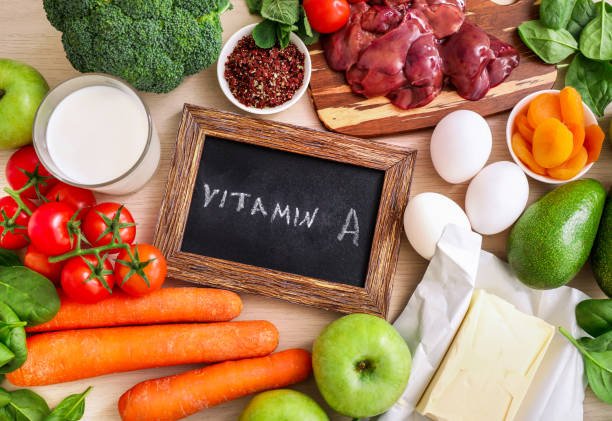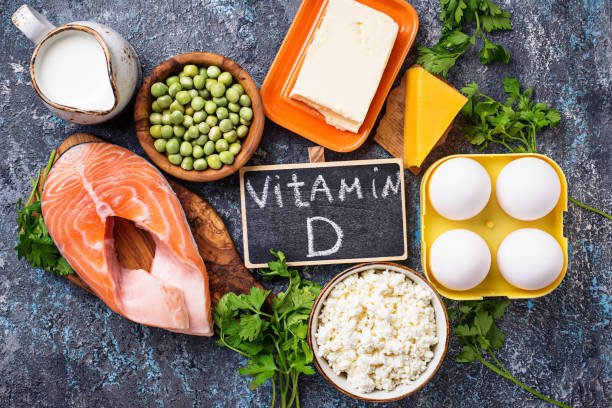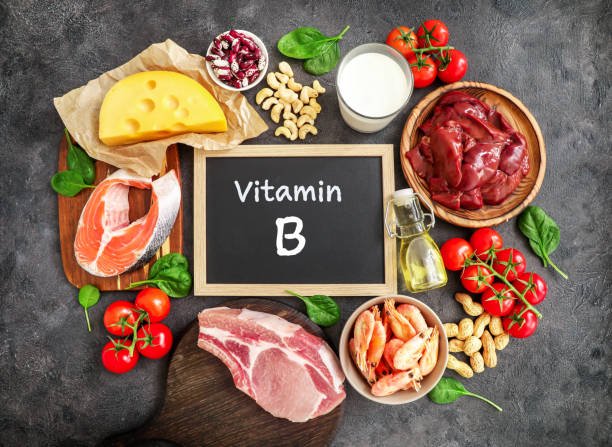Introduction
The Importance of Vitamins for Overall Health
Vitamins are organic compounds essential for various physiological functions and are crucial for maintaining overall health. They play a vital role in energy production, bone formation, wound healing, and bolstering the immune system, among other functions. Unlike most other nutrients, our bodies cannot produce vitamins in sufficient amounts. Hence, they must be obtained from our diet or supplements. A deficiency in any of these essential nutrients can lead to various health issues, depending on which vitamin is lacking.
World Health Organization (WHO) on Vitamin Deficiencies
Brief Overview of Common Deficiencies Worldwide
Across the globe, vitamin deficiencies are a concerning health issue. While some deficiencies are prevalent in specific regions due to dietary habits or lack of access to diverse foods, others are widespread irrespective of geography. For instance:
- Vitamin D deficiency is common in regions with limited sunlight, especially during winter months, and in populations that avoid sun exposure.
- Vitamin A deficiency often affects children and pregnant women in developing countries, leading to vision issues and increased vulnerability to infections.
- Vitamin B12 deficiency is notably observed in vegetarians and vegans since it’s primarily found in animal products.
Understanding these deficiencies, their causes, and effects is essential to promote better public health initiatives, make informed dietary choices, and ensure the well-being of populations worldwide.
Vitamin A Deficiency
Disadvantages
- Night Blindness: Vitamin A plays an essential role in the formation of visual purple in the eyes, which is crucial for low-light vision. When there’s a deficiency, one of the early symptoms is night blindness, where individuals find it challenging to see in dim light conditions.
- Dry Skin and Hair: Vitamin A is indispensable for maintaining the health of epithelial tissues, which include the skin and mucous membranes. Its deficiency results in dryness and scaliness of the skin, as well as dry and brittle hair. Over time, this can evolve into a condition called ‘phrynoderma’, where the skin becomes rough and bumpy.
- Frequent Infections: The body’s defense against infectious diseases is partly contingent on adequate vitamin A. A deficiency impairs the formation and activity of white blood cells, leading to a compromised immune response.
Effects on the Body
- Impact on Vision: Beyond night blindness, prolonged deficiency of vitamin A can lead to xerophthalmia, a spectrum of ocular symptoms ranging from dry eyes to severe corneal damage and blindness.
- Weakening of the Immune System: As mentioned above, vitamin A is vital for the proper functioning of the immune system. Its deficiency affects the mucosal lining in the respiratory, gastrointestinal, and genitourinary tracts, making them more susceptible to pathogens.
- Skin Health Implications: The skin becomes dry and rough when deprived of vitamin A. A more severe condition associated with its deficiency is hyperkeratosis, where the skin develops small, raised bumps.
Effects on the Mind
- Cognitive Difficulties: While the direct link between vitamin A and cognition in humans needs more exploration, animal studies have shown that vitamin A deficiency can impair learning and memory.
- Mood Disturbances: Emerging evidence suggests a correlation between low vitamin A levels and mental health disorders, including depression and anxiety, though the mechanisms are not fully understood.

Sources of Vitamin A
- Liver: This is one of the richest sources of vitamin A. Just a small serving can provide more than the daily recommended intake.
- Sweet Potatoes: These are rich in beta-carotene, a precursor to vitamin A. Consuming them with some fat can enhance the absorption of this nutrient.
- Carrots: Another excellent source of beta-carotene. Regular consumption can significantly boost vitamin A levels in the body.
Recommended Supplements
- Retinyl Palmitate or Acetate: These are preformed vitamin A and are immediately available for the body to use. They are more potent and can be toxic in very high doses, so it’s essential to adhere to recommended amounts.
- Beta-carotene: This is a provitamin A carotenoid found in plants. The body can convert it into active vitamin A. It’s less potent than preformed vitamin A but also less toxic.
Vitamin A’s integral role in vision, immunity, growth, and reproduction underscores its importance in our diet. It’s imperative to ensure its adequate intake either through diet or supplementation, especially in regions where deficiencies are prevalent.
National Institutes of Health (NIH) Vitamin Fact Sheets
Vitamin D Deficiency
Disadvantages
- Rickets in Children: One of the most striking signs of severe vitamin D deficiency in children is rickets. This disease leads to weakened bones, causing deformities like bowed legs and a curved spine.
- Osteoporosis in Adults: Vitamin D plays a pivotal role in calcium absorption in the gut, which is vital for maintaining bone health. A deficiency can lead to decreased bone density, making bones fragile and more susceptible to fractures.
- Muscle Weakness: An often overlooked consequence of vitamin D deficiency is muscle weakness, which can result in aches, pains, and even falls in the elderly.
Effects on the Body
- Bone and Muscle Issues: Besides the aforementioned rickets and osteoporosis, a deficiency can lead to osteomalacia in adults—a condition where bones become soft and weak, leading to pain and fractures.
- Cardiovascular Complications: Emerging research suggests a potential link between vitamin D deficiency and an increased risk of chronic diseases, including coronary artery disease.
- Increased Inflammation: Vitamin D plays a role in modulating the immune system. Insufficient levels can exacerbate inflammatory conditions.
Effects on the Mind
- Depression: There’s growing evidence connecting low vitamin D levels with depression, especially in older adults.
- Cognitive Decline: Preliminary studies suggest that vitamin D might play a role in maintaining cognitive function, and a deficiency may speed up cognitive decline in the elderly.

Sources of Vitamin D
- Sunlight: The skin can produce vitamin D when exposed to UVB rays from the sun. However, factors like the time of year, latitude, skin pigmentation, and sunscreen use can affect UVB absorption.
- Fatty Fish: Salmon, mackerel, sardines, and trout are among the best dietary sources of vitamin D.
- Fortified Foods: Many dairy products, cereals, and juices are fortified with vitamin D, though the amounts and forms of vitamin D vary.
Recommended Supplements
- Vitamin D2 (Ergocalciferol): This is a plant-derived form of vitamin D. It’s used in some supplements and fortified foods.
- Vitamin D3 (Cholecalciferol): More effective at raising blood levels of the vitamin, this is the type of vitamin D your skin makes in response to sun exposure. It’s found in animal-derived foods and is commonly used in supplements.
Vitamin D is unique because it functions as a hormone in the body and can be synthesized through sun exposure. The many roles it plays—from supporting bone health to modulating the immune system—highlight the importance of maintaining adequate levels, either through sunlight, diet, or supplementation.
National Institutes of Health (NIH) Vitamin Fact Sheets
Vitamin B12 Deficiency
Disadvantages
- Anemia: Vitamin B12 is crucial for the formation of red blood cells. A deficiency can result in megaloblastic anemia, where the bone marrow produces oversized and immature red blood cells, leading to symptoms such as fatigue and weakness.
- Nerve Damage: Prolonged deficiency of vitamin B12 can cause damage to the myelin sheath, which surrounds and protects nerve fibers. This can result in numbness, tingling, and even mobility issues in severe cases.
- Fatigue: Due to its role in energy metabolism and red blood cell formation, a lack of vitamin B12 often manifests as fatigue and a lack of energy.
Effects on the Body
- Blood Cell Production: Vitamin B12 plays an essential role in DNA synthesis. Its deficiency can interfere with the proper formation and maturation of red blood cells, leading to anemia.
- Nerve Function: In the absence of sufficient vitamin B12, the nervous system can suffer, leading to symptoms like numbness, tingling in the hands and feet, balance problems, and difficulty walking.
- Energy Levels: Vitamin B12 plays a key role in converting food into energy. A deficiency can result in a decrease in energy production, causing fatigue.
Effects on the Mind
- Memory Loss: One of the more concerning symptoms of a B12 deficiency is memory loss, which can sometimes be mistaken for the onset of dementia, especially in older individuals.
- Mood Changes: A lack of B12 can affect mood, potentially resulting in symptoms of depression, irritability, and mood disturbances.

Sources of Vitamin B12
- Meat: Particularly beef, liver, and chicken provide a good amount of vitamin B12.
- Eggs: Especially the yolk, which contains most of the vitamin B12.
- Dairy Products: Milk, cheese, and yogurt are good sources of B12, especially for vegetarians who might not consume meat.
Recommended Supplements
- Cyanocobalamin: A synthetic form of vitamin B12 commonly found in dietary supplements and used to fortify foods. It’s stable and can easily convert to the active forms of B12 in the body.
- Methylcobalamin: A naturally occurring form of B12 found in food and is available as a supplement. It’s the form of B12 that can be used directly in cellular reactions.
Vitamin B12 is pivotal for many bodily functions, especially those related to blood formation and the nervous system. As it’s primarily found in animal products, certain groups like vegans and the elderly are particularly at risk for deficiency and may need to consider supplementation to maintain adequate levels.
National Institutes of Health (NIH) Vitamin Fact Sheets
Vitamin C Deficiency
Disadvantages
- Scurvy: Historically associated with sailors who had little to no fresh produce on long voyages, scurvy is a disease resulting from a deficiency of vitamin C. Symptoms include anemia, swollen and bleeding gums, joint pain, and poor wound healing.
- Slow Wound Healing: Vitamin C is essential for collagen production, a crucial component for wound healing. A deficiency can significantly slow down the body’s natural healing process.
- Weak Immunity: Vitamin C boosts the immune system by encouraging the production of white blood cells, which help protect the body against infection. A lack of vitamin C can make one more susceptible to illnesses.
Effects on the Body
- Connective Tissue Health: Collagen, the most abundant protein in our body and necessary for the health of skin, cartilage, tendons, ligaments, and blood vessels, relies on vitamin C for its production.
- Antioxidant Function: Vitamin C acts as a potent antioxidant, neutralizing free radicals that can cause cellular damage and contribute to aging and diseases like cancer.
- Iron Absorption: It enhances the body’s ability to absorb non-heme iron, the type of iron present in plant-based foods, making it essential for vegetarians and vegans.
Effects on the Mind
- Fatigue: While not as pronounced as with some other deficiencies, a lack of vitamin C can result in feelings of fatigue and lethargy.
- Mood Swings: There’s some evidence to suggest that vitamin C can affect mood. A deficiency might lead to feelings of irritability and mild depression.

Sources of Vitamin C
- Citrus Fruits: Oranges, lemons, limes, and grapefruits are some of the most well-known sources of vitamin C.
- Broccoli: A versatile vegetable that is rich in vitamin C and can be included in a variety of dishes.
- Strawberries: These delicious berries are not only rich in flavor but also pack a significant vitamin C punch.
Recommended Supplements
- Ascorbic Acid: The most common form of vitamin C in supplements, ascorbic acid is easily absorbed and utilized by the body.
- Buffered Vitamin C: This is often combined with minerals like calcium, magnesium, and potassium to produce a neutral pH (non-acidic), making it gentler on the stomach.
Vitamin C, being a water-soluble vitamin, isn’t stored in the body and needs to be consumed regularly in the diet. Its role in supporting the immune system, skin health, and as an antioxidant emphasizes the importance of maintaining adequate levels either through diet or supplementation.
National Institutes of Health (NIH) Vitamin Fact Sheets
Vitamin E Deficiency
Disadvantages
- Nerve and Muscle Damage: Vitamin E is crucial for maintaining the integrity of the nervous system. A deficiency can lead to neuropathy, which results in nerve degeneration and muscle weakness.
- Vision Problems: A prolonged deficiency can affect the retina’s outer layer, leading to vision disturbances and even blindness in extreme cases.
- Weakened Immune System: Adequate vitamin E is necessary for a robust immune response, and deficiency can render one more susceptible to infections.
Effects on the Body
- Antioxidant Protection: One of the primary roles of vitamin E is as an antioxidant, neutralizing harmful free radicals. These free radicals can damage cells, proteins, and DNA, potentially leading to accelerated aging and increased risk of diseases.
- Skin Health: Vitamin E supports skin health by promoting its natural moisturizing mechanism and offering protection against UV damage.
- Reproductive System: Vitamin E is sometimes referred to as the “fertility vitamin” due to its role in reproductive health. A deficiency might lead to reproductive problems and even miscarriages in severe cases.
Effects on the Mind
- Neuromuscular Problems: As a result of nerve damage from prolonged deficiency, there can be coordination and walking difficulties, muscle weakness, and tremors.

Sources of Vitamin E
- Nuts and Seeds: Almonds, sunflower seeds, and hazelnuts are among the richest dietary sources of vitamin E.
- Spinach: This leafy green vegetable is not only a good source of iron but also provides a decent amount of vitamin E.
- Avocado: Apart from being a source of healthy fats, avocados are also packed with vitamin E.
Recommended Supplements
- Alpha-tocopherol: The most biologically active form of vitamin E, it’s commonly used in supplements and fortified foods.
- Mixed Tocopherols: While alpha-tocopherol is the most studied, other forms like beta, gamma, and delta-tocopherols also have beneficial effects. Supplements with mixed tocopherols provide a broader range of vitamin E forms.
Vitamin E, being a fat-soluble vitamin, requires fat for digestion and absorption. Its myriad roles in the body, especially as an antioxidant and in neurological health, make it an essential nutrient. However, due to its fat-soluble nature, excessive intake from supplements can lead to toxicity, emphasizing the importance of a balanced approach.
Prevention and Monitoring of Vitamin Deficiencies
Routine Health Check-ups
- Importance of Regular Blood Tests: Periodic blood tests can measure levels of various vitamins, ensuring early detection of deficiencies. This proactive approach can prevent many of the associated health problems before they become severe.
- Consultation with Healthcare Professionals: Regular visits to doctors or dieticians can help in assessing dietary habits and recommending necessary dietary changes or supplements.
Balanced Diet Advice
- Diverse Food Intake: Consuming a variety of foods ensures a broad spectrum of vitamins and minerals. It’s essential to include different food groups, such as fruits, vegetables, whole grains, lean proteins, and healthy fats in daily meals.
- Recognizing Bioavailability: Some vitamins are better absorbed when paired with other nutrients. For example, the absorption of non-heme iron (from plant sources) improves with vitamin C intake. Understanding such combinations can maximize vitamin intake from food.
- Special Diets and Risks: Those on restrictive diets, such as veganism or certain medical diets, may be at a higher risk for specific deficiencies. It’s vital to recognize these risks and ensure vitamin intake through fortified foods or supplements.
Harvard’s The Nutrition Source on Vitamins
Awareness Campaigns and Education
- Public Health Initiatives: Governments and health organizations should run campaigns that raise awareness about the importance of vitamins, common sources, and the risks of deficiencies.
- Educational Programs in Schools: Early education about nutrition can instill healthy eating habits from a young age. Schools can play a significant role by incorporating nutrition education into their curriculum.
- Community Workshops: Local communities can organize workshops where experts share knowledge about balanced diets, local food sources rich in specific vitamins, and how to recognize early symptoms of deficiencies.
Regular monitoring and understanding the pivotal role vitamins play in our overall health can not only prevent deficiencies but also lead to a better quality of life. Prevention, as they say, is always better than cure.
Conclusion
The human body is an intricate system that relies on a delicate balance of vitamins and minerals to function optimally. As we’ve explored, vitamin deficiencies are not just minor inconveniences; they can lead to severe health issues that affect both the body and the mind. From vision problems and muscle weaknesses to cognitive disturbances and mood changes, the implications of neglecting our vitamin intake can be profound.
In our globalized world, where processed foods are prevalent and lifestyles are increasingly sedentary, the risk of vitamin deficiencies is higher than ever before. But there’s also good news. Today, we have a wealth of knowledge about these essential nutrients – where to find them, how they benefit us, and what happens when we don’t get enough. With regular health check-ups, a conscious effort to maintain a balanced diet, and the advantage of supplementation where necessary, we can ensure our bodies get the nutrients they need.
Moreover, with increasing awareness campaigns and educational initiatives, information about vitamin deficiencies is more accessible than ever. Such proactive measures highlight the importance of a community and collective effort in promoting health and well-being.
In conclusion, vitamins play an integral role in our overall health and well-being. By being informed, proactive, and making smart dietary choices, we can prevent the potential pitfalls of vitamin deficiencies and enjoy a life of optimal health.



